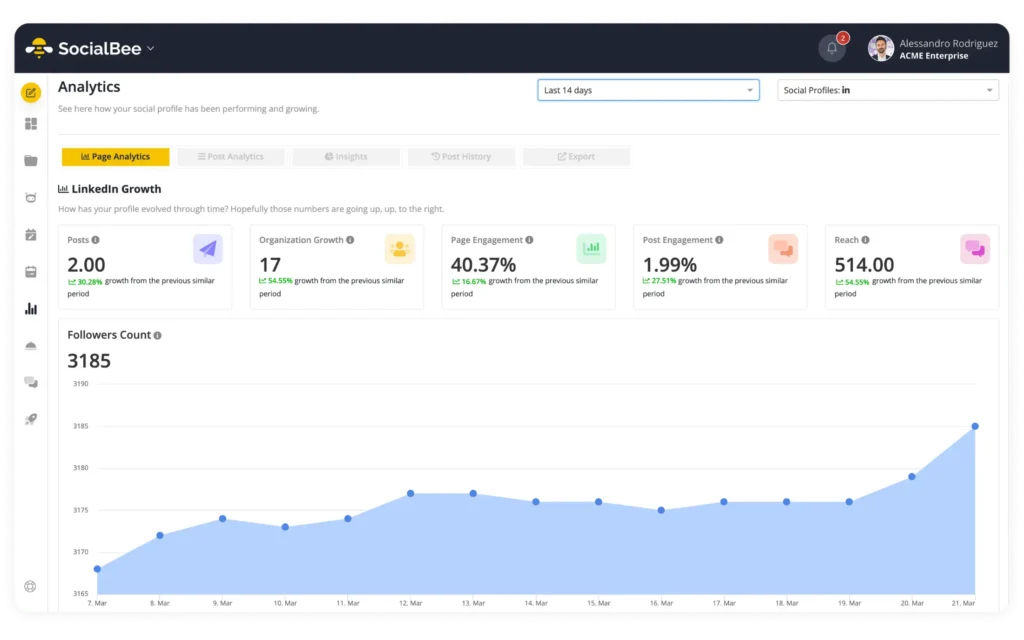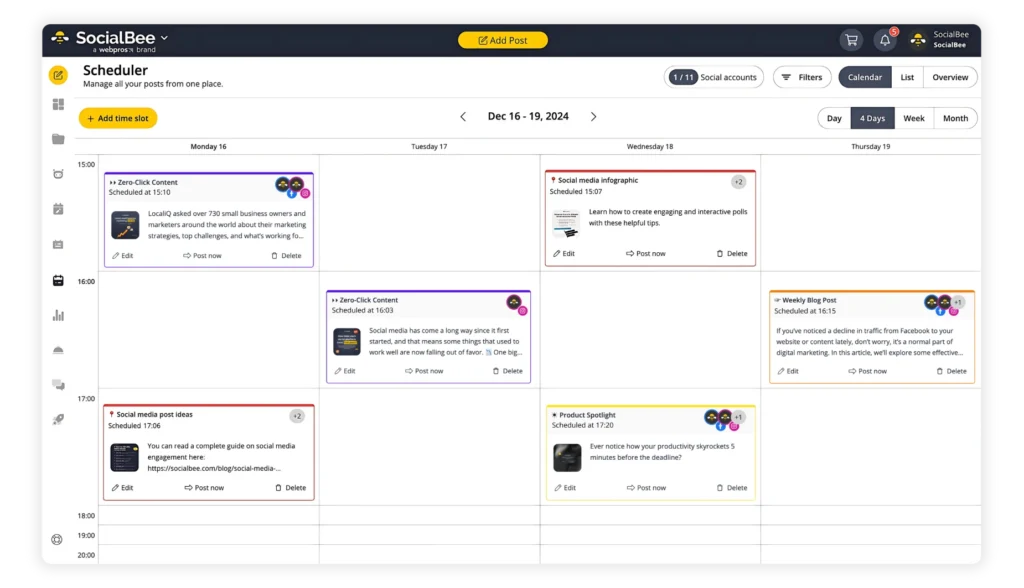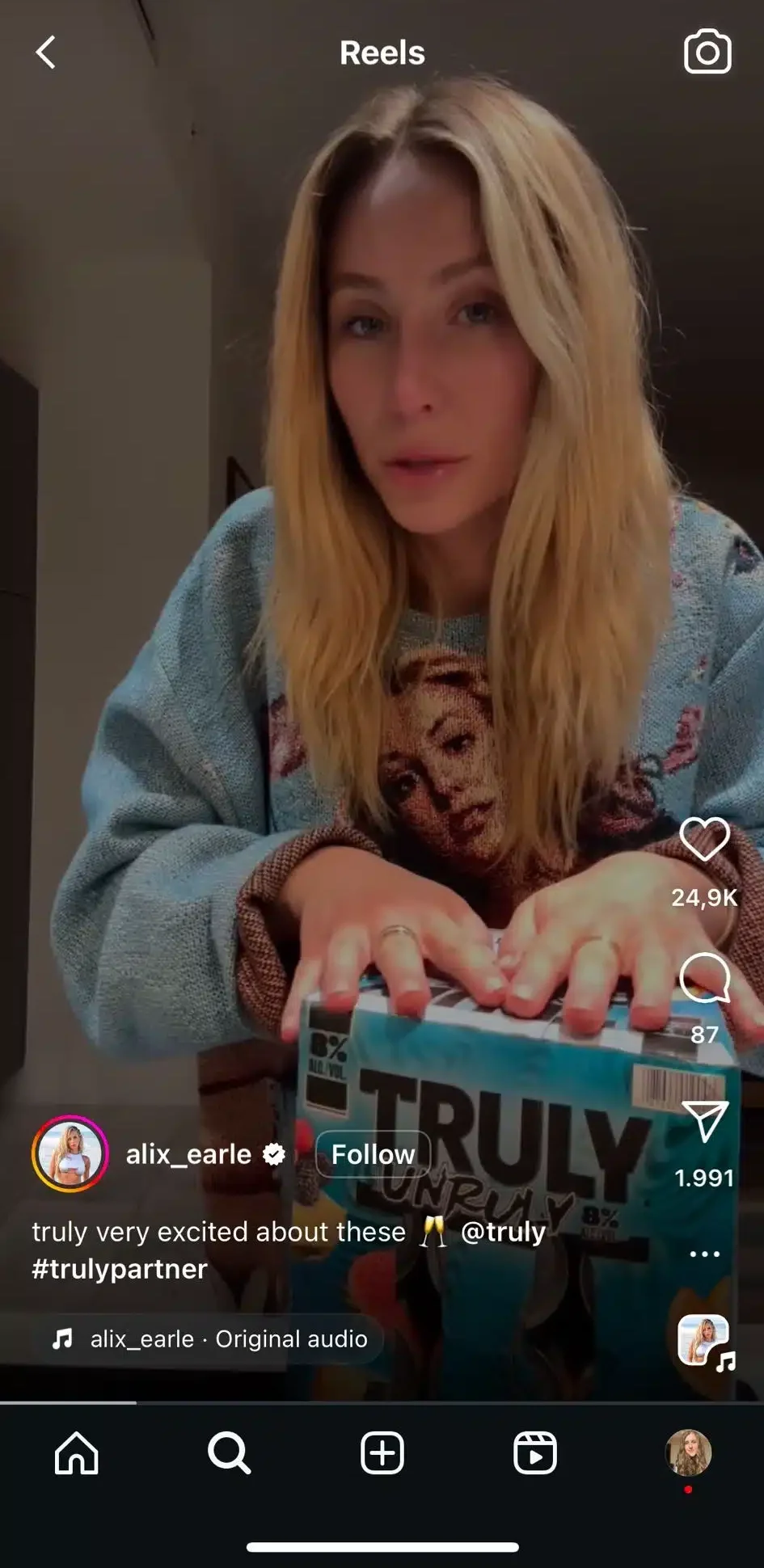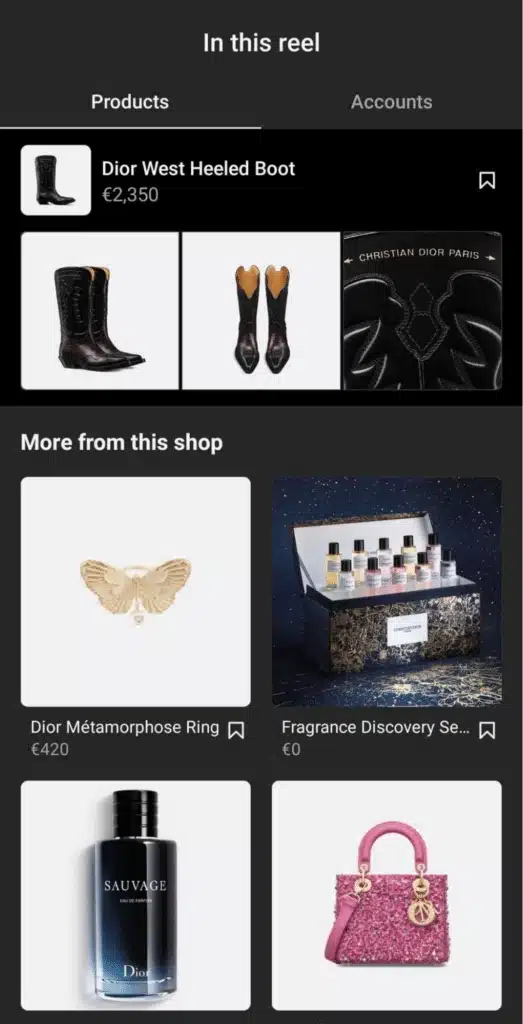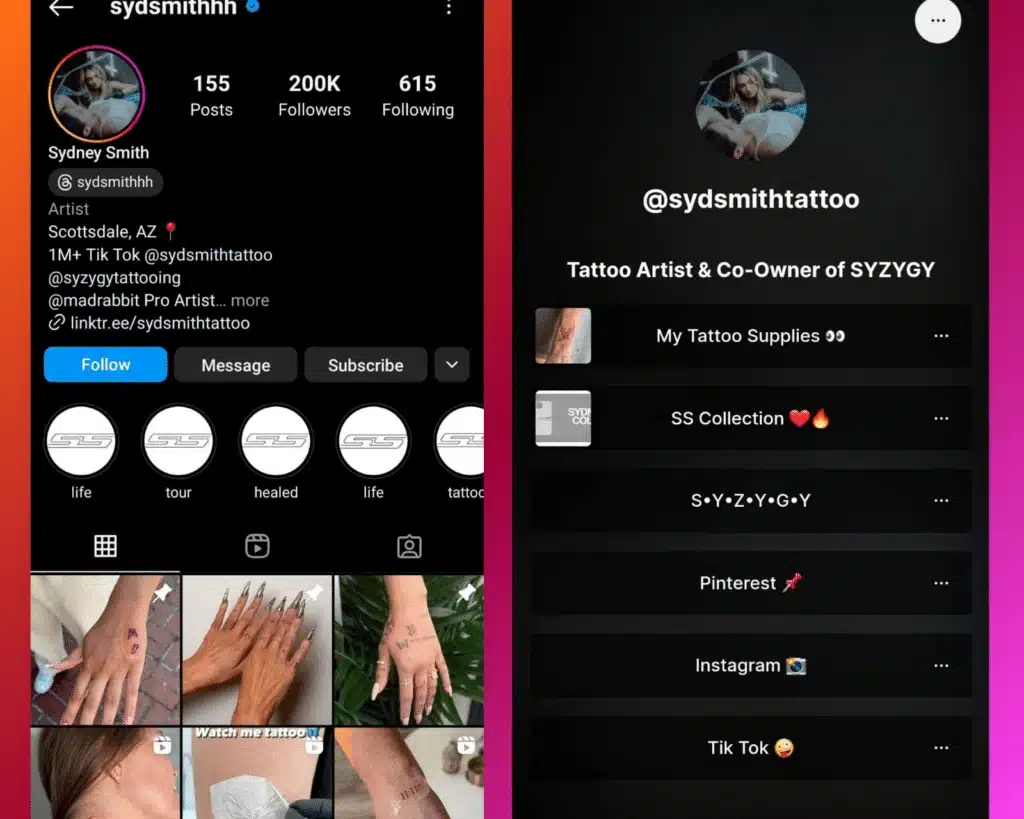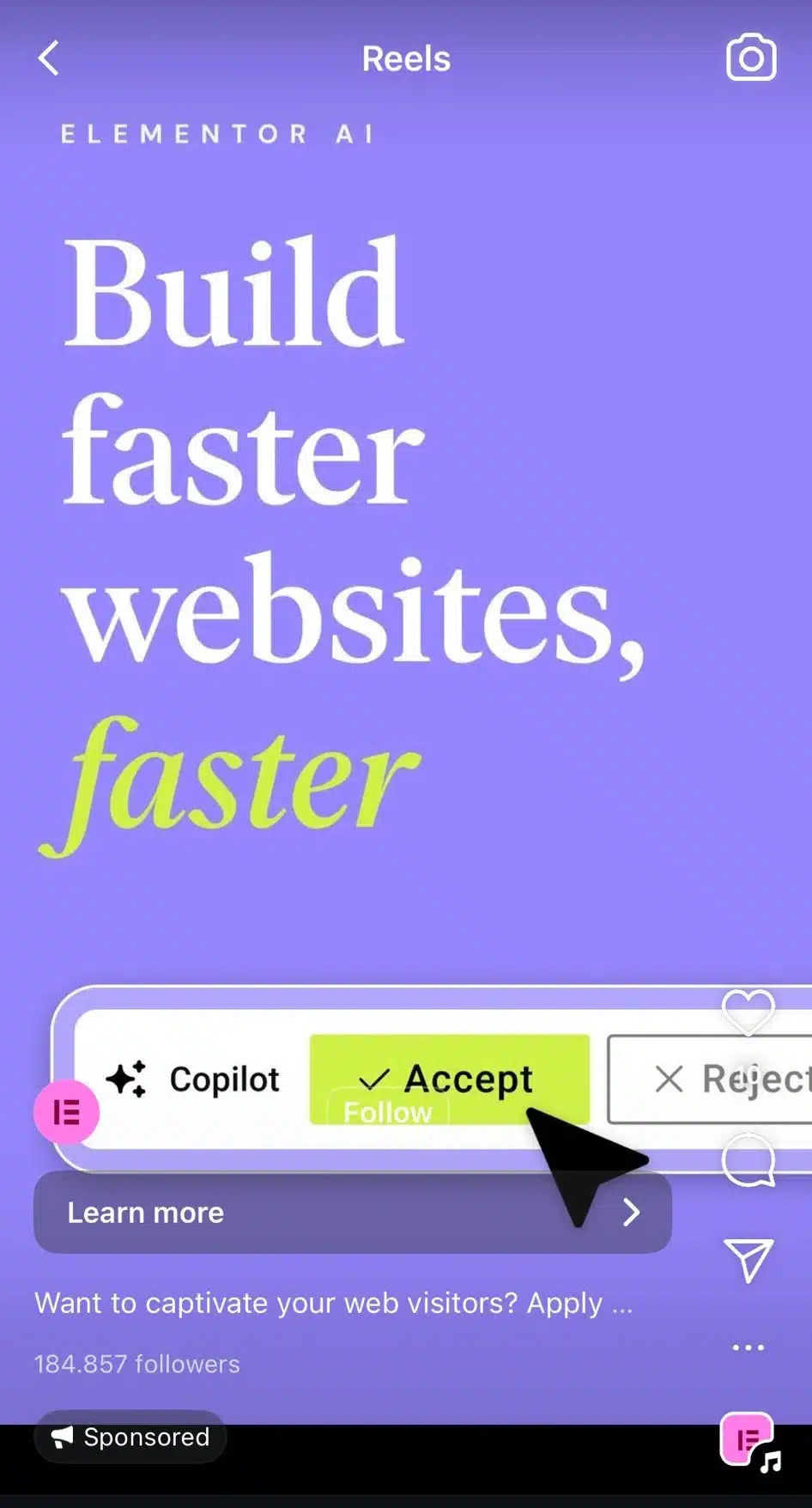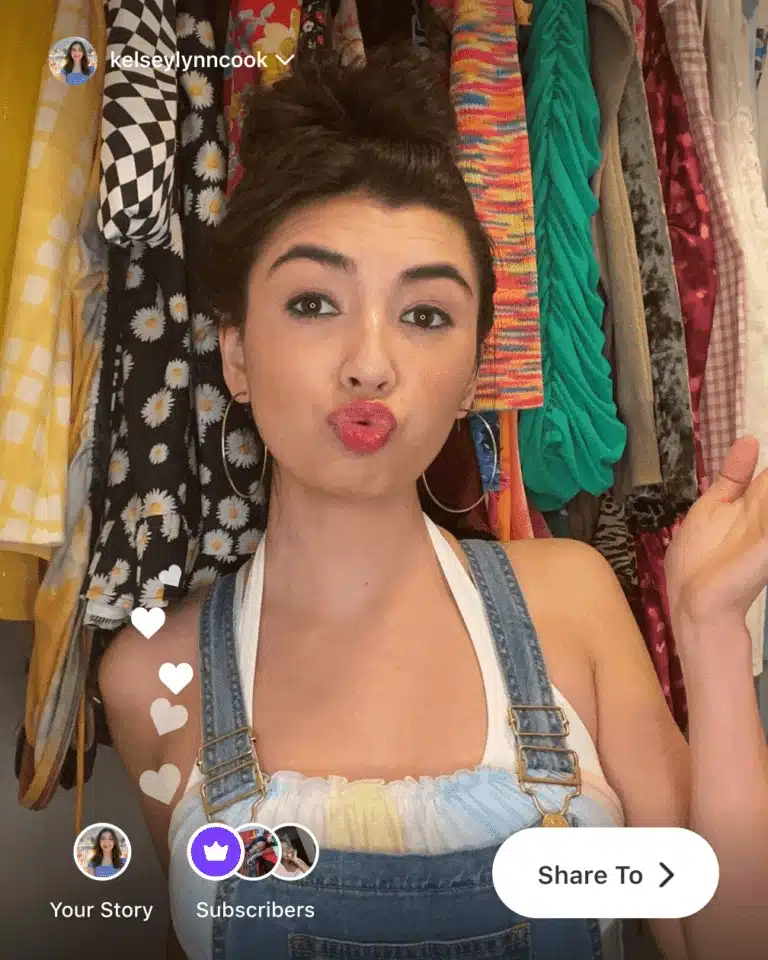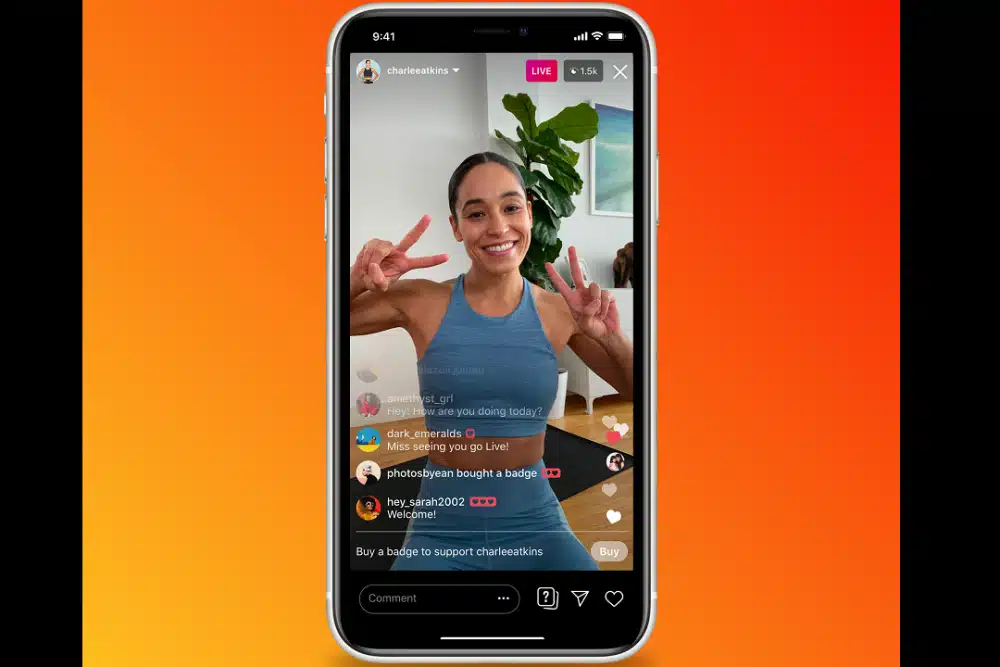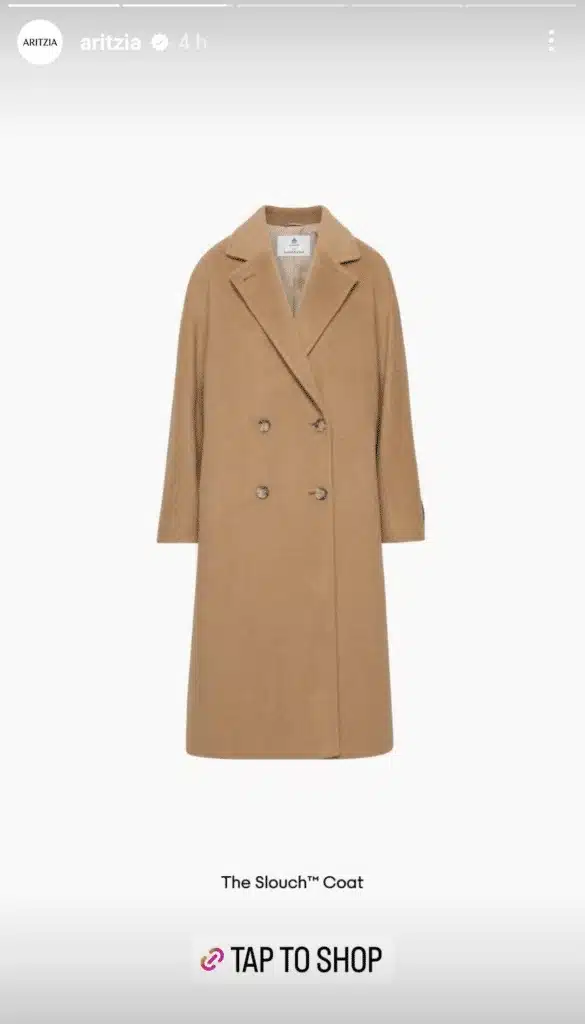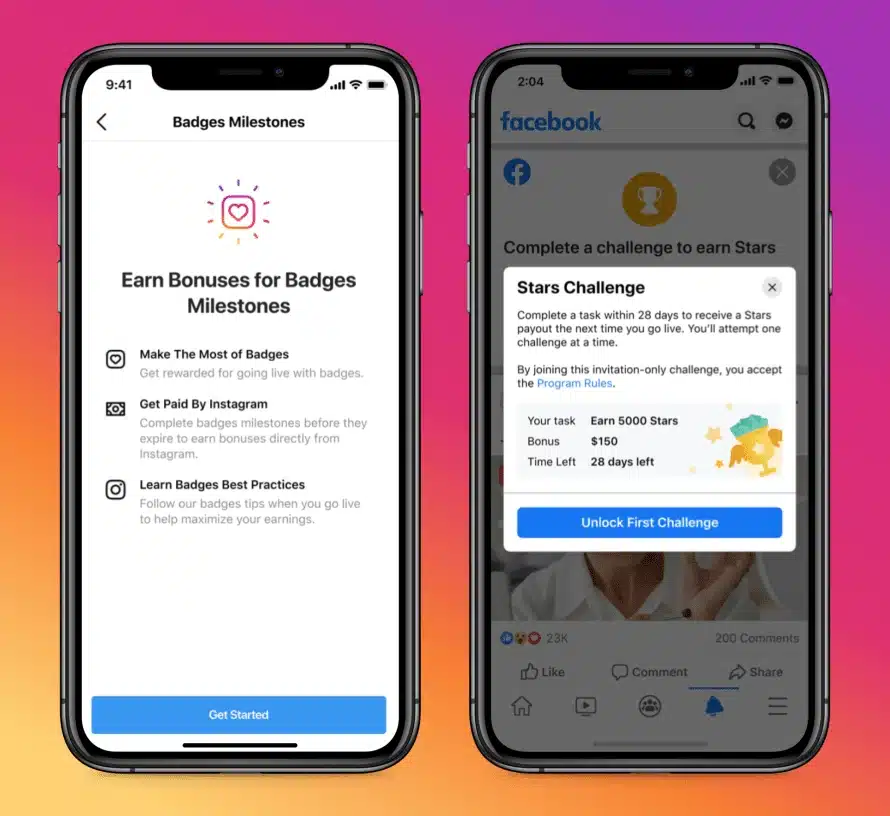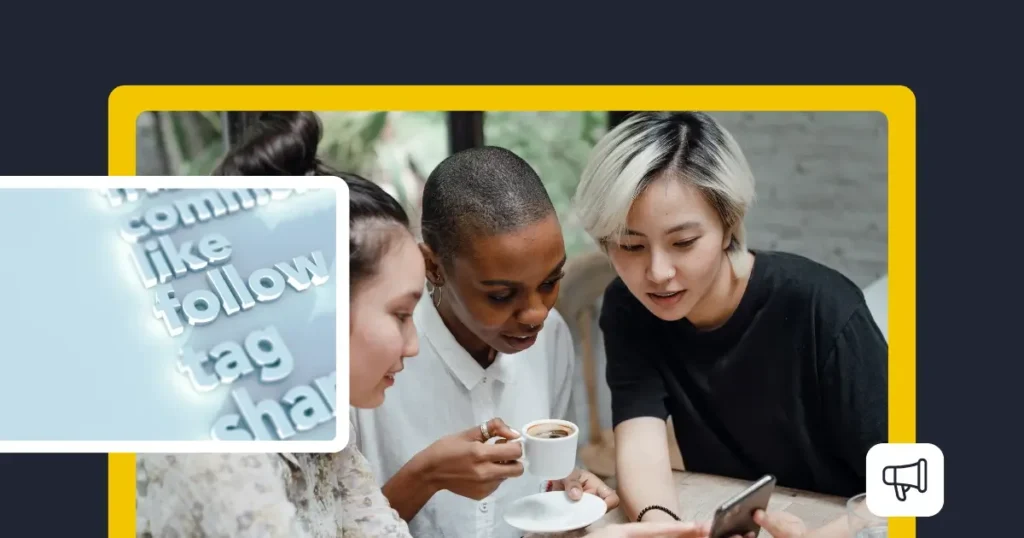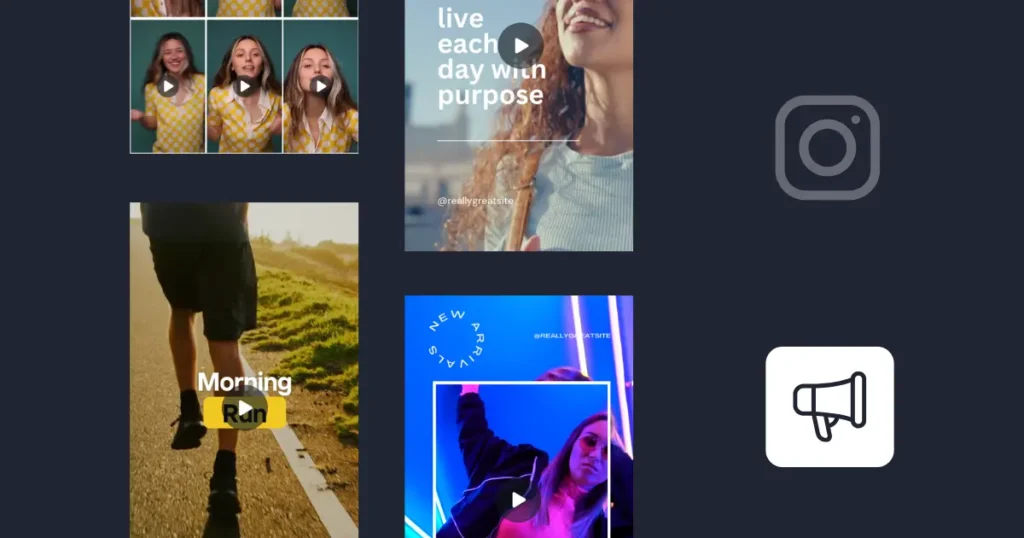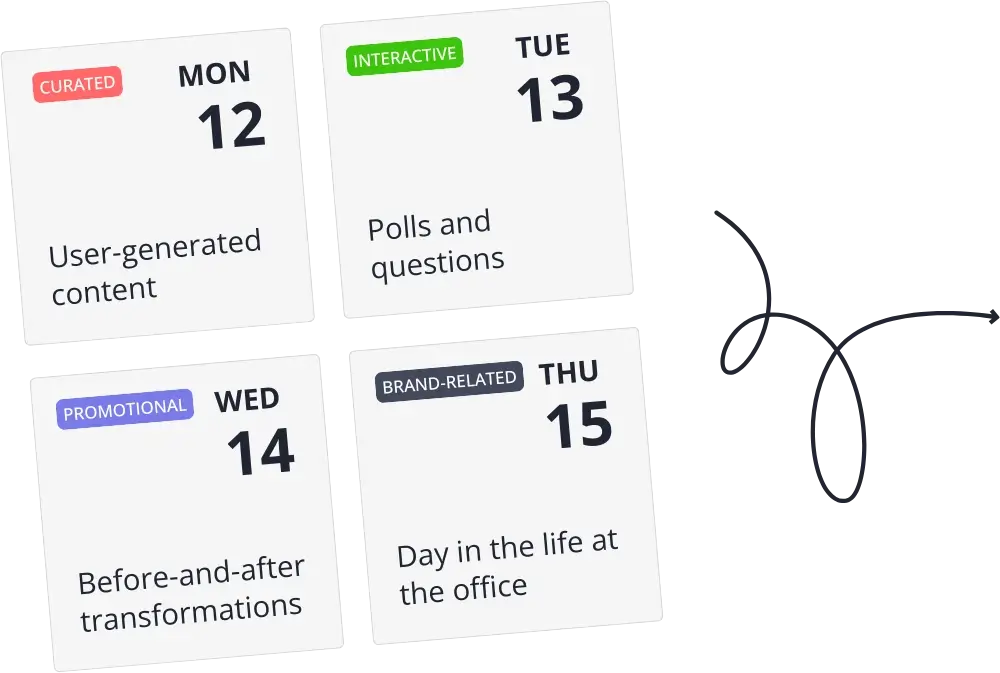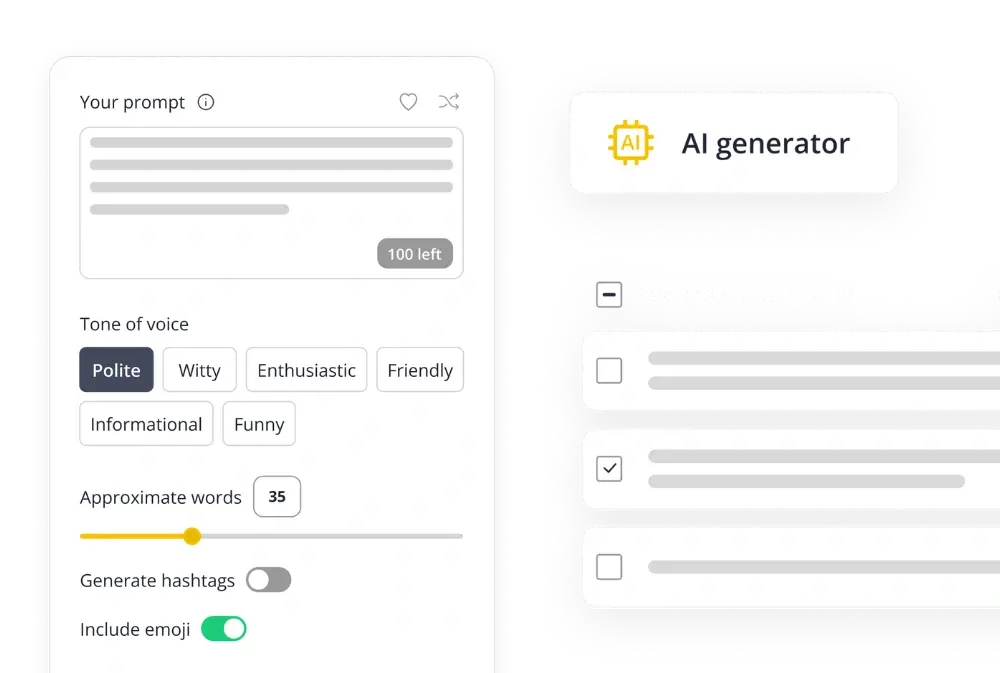
Content Writer at SocialBee
Instagram is one of the top platforms for digital marketing and social media today. With over 2 billion active monthly users, it’s more than just a place for sharing photos—it’s become a hub for growing businesses, which is why today we’ll look at how to monetize Instagram successfully.
Whether starting as an entrepreneur, building your influence, or running a business, knowing how to use the platform effectively to make money on Instagram can make a big difference.
This guide will show you how to turn your feed into a space that drives engagement and boosts sales.
We’re SocialBee LABS SRL, part of WebPros. We use the information you provide to share relevant content and product updates, as outlined in our Privacy Policy. You can opt out anytime.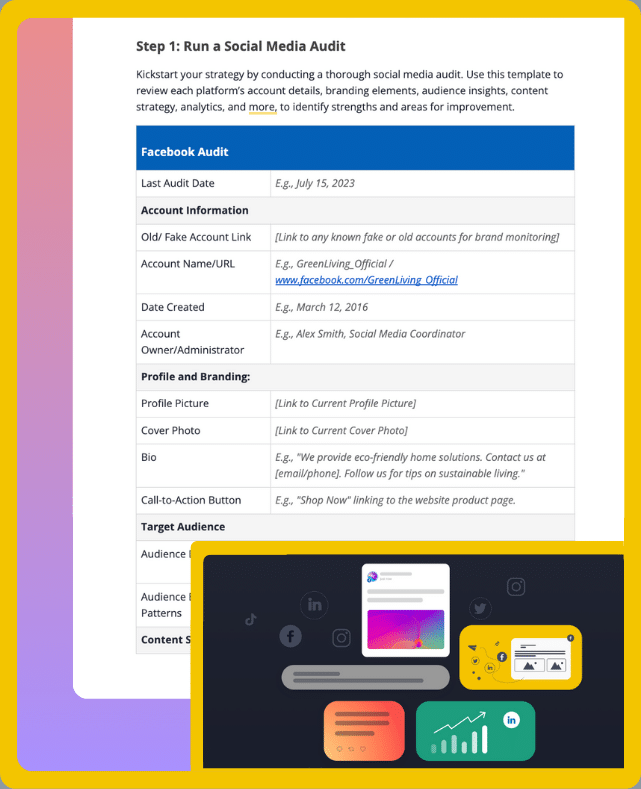
Short summary
- Instagram monetization is the process of using your Instagram account to generate income.
- To make your Instagram account eligible for monetization, you must create a Business account or Creator profile.
- Work with other businesses to promote their products through sponsored posts or brand partnerships that match your style and audience.
- If you’re an influencer, collaborate with brands and promote their products. If you’re a brand, use influencer marketing campaigns.
- Set up Instagram Shopping to turn your profile into your own online store, letting followers shop directly from your posts and Stories.
- Promote affiliate links to earn commissions by sharing products you genuinely love, using bio links, Stories, or highlights.
- Enable ads on your Instagram Reels to earn revenue by creating engaging, original content that attracts viewers and retains their attention.
- Offer exclusive content through Instagram Subscriptions to monetize your account and provide Instagram followers with unique perks like tutorials, live streams, or behind-the-scenes access.
- Host engaging Instagram Live sessions where viewers can purchase badges to show their support, while building connections through Q&As, tutorials, or performances.
- Use Instagram to market and sell digital products like e-books, an online course, or presets by showcasing their value through engaging posts, Stories, and Live demos.
- Add shop tags to your Instagram Stories to make it easy for followers to buy products directly, using high-quality images to grab their attention.
- Keep an eye on Instagram’s creator programs for milestone bonuses, which reward you for hitting specific goals like reaching a set number of followers.
Table of contents
- What is Instagram monetization?
- How to create a monetizable Instagram account
- Top 10 monetization strategies for Instagram
- 1. Partner with brands for sponsored content and collaborations
- 2. Try influencer marketing campaigns
- 3. Create an online store through Instagram Shopping
- 4. Promote affiliate links and earn commissions
- 5. Enable ads on your Instagram Reels
- 6. Offer exclusive content through Instagram Subscriptions
- 7. Use Instagram Live and Badges for revenue generation
- 8. Create and sell digital products
- 9. Use shop tags in your Instagram Stories
- 10. Earn milestone bonuses
- Frequently asked questions
- Master your Instagram account monetization strategy
What is Instagram monetization?
Instagram monetization is the process of earning revenue through your Instagram account. You can monetize your Instagram account in numerous ways, from working with brands to promote their products to enabling ads on your Instagram Reels and more.
How to create a monetizable Instagram account
To successfully monetize your Instagram account, it’s essential to set up your profile and content strategy the right way.
Here are seven tips for building a strong foundation for your successful Instagram monetization strategy:
Tip 1: Define your brand identity
Your brand identity is what sets you apart. Focus on creating:
- A consistent aesthetic that reflects your niche
- A tone of voice that resonates with your audience
- Content that builds trust and loyalty
Tip 2: Switch to a business or creator profile
You can’t monetize your Instagram profile unless you make the switch to an Instagram Business account or a Creator one. Upgrading provides access to a professional dashboard with essential tools like performance analytics and audience insights, allowing you to tailor your content strategy effectively.
Tip 3: Optimize your profile for discovery
Make your profile easy to find and engaging by:
- Writing a compelling bio with relevant keywords
- Using a profile picture that represents your brand
- Adding a link to your website or landing pages to drive traffic
Tip 4: Understand your audience
Analyze your followers’ demographics, interests, and behaviors to create content that speaks directly to them. Look at data like age, location, and activity patterns to shape your strategy.
SocialBee‘s analytics for the Instagram app provide a comprehensive overview of your Instagram performance, helping you understand your audience’s behavior, track your growth, and optimize your content based on concrete data.
Use SocialBee to understand your audience and make data-driven decisions.
Start your 14-day free trial at SocialBee today!
Tip 5: Produce high-quality, engaging content
High-quality content keeps your audience engaged and coming back. Best practices include:
- Maintaining a consistent theme or aesthetic
- Using visually appealing images and videos
- Creating captions that encourage interaction
- Adding relevant hashtags to increase reach
- Posting regularly to stay top-of-mind
Tip 6: Experiment with different strategies
Instagram is always changing, so don’t be afraid to try new content formats, posting times, or engagement tactics to see what resonates with your audience.
Tip 7: Stay consistent
Consistency in your posting schedule, tone, and quality is key to building a loyal audience and standing out on Instagram.
By using SocialBee’s content calendar feature, you get to pre-plan your posts through a structured approach, which helps to keep your audience engaged and your brand top-of-mind.
Manage your Instagram strategy effectively with SocialBee.
Start your 14-day free trial now!
Top 10 monetization strategies for Instagram
Here are 10 strategies that can turn your Instagram presence into a profitable venture:
- Partner with brands for sponsored content and collaborations
- Try influencer marketing campaigns
- Create an online store through Instagram shopping
- Promote affiliate links and earn commissions
- Enable ads on your Instagram Reels
- Offer exclusive content through Instagram Subscriptions
- Use Instagram Live and Badges for revenue generation
- Create and sell digital products
- Use shop tags in your Instagram Stories
- Earn milestone bonuses
1. Partner with brands for sponsored content and collaborations
Collaborating with brands is a classic monetization strategy.
There are plenty of ways to earn from a collaboration between brands: create sponsored content that promotes the partner’s products or services, develop and sell co-branded products or services, share ad revenue from sponsored content, or license content to the collaborating business.
For example, @barbiestyle wanted to expand their reach during the height of the Barbie movie’s popularity, so they made a collaboration post about their co-branded luggage line with @beis. This brought the former better visibility and the latter increased sales.
2. Try influencer marketing campaigns
Influencer marketing involves Instagram creators promoting products in a more personal and relatable way.
Take for example @alix_earle’s promotion of Truly:
Alix does a taste test of the drink and gives it a rating at the end, talking about how her friends would enjoy the flavor as well. The laid-back way she presented the product to her followers was true to her personal branding as an influencer. This makes her followers trust her recommendations just like they would a friend’s.
You could be part of a larger campaign or focus on promoting a single product. The success of this strategy relies heavily on your credibility and the trust you’ve built with your audience.
Don’t forget to add a paid partnership label or hashtag to your post for transparency.
3. Create an online store through Instagram Shopping
Instagram Shopping allows you to add a vibrant storefront to your dedicated Instagram page, inviting followers to browse and purchase products directly from your posts and Stories.
This integration of social media and e-commerce not only improves the user experience but also opens up a new revenue stream for you. Even household brands like @dior take advantage of this:
Having a professional Instagram account is essential for accessing the shopping features.
How to set up an Instagram shop
Once your account type is set as Business or Creator, you’ll need to connect it to a Facebook Page, as Instagram Shopping relies on Facebook’s infrastructure for product catalog management.
The next step is to upload your product catalog to Facebook, either manually or through an e-commerce platform like Shopify or BigCommerce, which can synchronize your inventory with Instagram.
Once your catalog is live, you can start tagging products in your Instagram posts and Stories. These tags create a direct link to the product page on your website, allowing followers to make purchases effortlessly.
PRO TIP: When setting up your Instagram shop, make sure that your product listings are detailed and appealing. Each product post should tell a story or highlight a unique feature that sets it apart.
4. Promote affiliate links and earn commissions
Affiliate marketing allows you to promote products and earn a commission for every purchase Instagram users make through your unique link.
Identify affiliate programs that align with your niche and audience interests. Many companies offer affiliate programs, so it’s important to choose those whose products or services you genuinely like and would naturally incorporate into your content.
Once you’ve joined an affiliate program, you’ll receive a unique tracking link, which helps to track any sales attributed to your promotions.
The art of successful affiliate marketing on Instagram lies in how you integrate these links into your content. Since Instagram doesn’t allow clickable links in post captions, you can place your affiliate link in your bio and direct followers there in your posts. Here is how tattoo artist @sydsmiyhhh does this:
Alternatively, for those with access to the Swipe Up feature (accounts that are verified or have over 10,000 followers) or link stickers, this provides a direct way to integrate affiliate links. It’s also effective to use highlights to save Stories featuring affiliate products, allowing new followers to view them even after the original Story disappears.
PRO TIP: Always disclose that your posts include affiliate links (using tags like #ad or #affiliate), as this honesty makes your followers trust you and is in line with advertising standards.
5. Enable ads on your Instagram Reels
You can make money from Instagram Reels by enabling ads to play in between them. This is a popular strategy, especially suited for creators who excel in crafting short, engaging Reels.
To start, you need to have a Business Instagram account and a good track record of creating Reels that resonate with your audience. The content of your existing Instagram Reels should be original, creative, and aligned with Instagram’s community guidelines. For advertisers and agencies scaling Instagram campaigns, the right demand-side platform (DSP) is key for targeting and performance. G2 has a guide on reliable DSPs for advertising agencies to help you find the best fit for Instagram ad placements.
Once you meet these Instagram monetization requirements, you can opt into the ads program. Ads are inserted between Reels on Instagram in a user’s feed. These can be skippable or non-skippable short video ads. They don’t interrupt your Reel but appear as part of the overall Reels experience.
Instagram shares ad revenue with creators based on the performance of their Reels. Earnings are influenced by factors like the number of views, audience engagement, and the advertiser’s spending.
Whether you’re posting educational content, entertainment, or showcasing a talent, focus on creating Instagram Reels that capture and retain the audience’s attention. The more engaging your content, the more views and longer watch times you’ll achieve, which can potentially increase your ad revenue.
PRO TIP: Balance quantity with quality. Your Reels shouldn’t feel repetitive or solely focused on monetization. Instead, they should offer value and align with your overall content strategy.
6. Offer exclusive content through Instagram Subscriptions
Instagram’s subscription feature allows your followers to pay a monthly fee in exchange for exclusive content that isn’t available to your general audience.
This strategy is particularly effective for Instagram influencers, creators, and public figures who have already cultivated a dedicated following and can provide value that goes beyond regular Instagram posts.
To begin with, you should already have an engaged follower base and a clear understanding of what unique content or experiences you can offer that would entice your audience to subscribe. This could be anything from exclusive behind-the-scenes content, in-depth tutorials, personal vlogs, early access to your content, exclusive Q&A sessions, and even member-only live streams.
Once you’ve identified what exclusive content you can offer, set up the subscription feature on your Instagram account. Choose a subscription fee that reflects your content’s value while also being affordable for your audience.
PRO TIP: Promotion plays a crucial role in whether you earn money your Instagram subscription. Use your regular posts, Stories, and even Reels to tease the exclusive content available in your subscription. This can include sneak peeks, previews, or testimonials from current subscribers.
7. Use Instagram Live and Badges for revenue generation
Going live on Instagram can be a fun way to connect with your audience in real time. Viewers can show their support by purchasing badges during your live sessions. These badges not only provide financial support but also highlight the supporters’ comments, making them stand out.
The content of your Live should be compelling enough to encourage viewers to support you by purchasing badges. This could range from Q&A sessions, tutorials, live performances, and workshops, to exclusive announcements or behind-the-scenes looks.
Before going live, use your Instagram feed, Stories, and other social media platforms to announce the date and time of your Live and build anticipation. This not only ensures a higher turnout but also prepares your audience for the opportunity to purchase badges.
During the Live session, actively engage with your audience. Acknowledge viewers as they join, respond to their comments, and encourage interaction. This personal engagement increases the likelihood of your audience purchasing badges as a token of their appreciation and support.
PRO TIP: Thank viewers who purchase badges during the broadcast. This recognition not only makes your supporters feel valued but also encourages others to purchase badges. You could even offer additional incentives for badge purchases, like shout-outs or exclusive post-live content.
8. Create and sell digital products
Use your Instagram platform to market and sell digital products like e-books, courses, artwork, digital planners, photography presets, or even software tools. It’s an appealing path for creators, educators, artists, and entrepreneurs who can infuse their knowledge or skills into a digital format.
You can follow these steps:
- Identify a digital product that aligns with your skills and your audience’s interests:
- If you’re a fitness coach, consider creating workout plans or nutrition guides.
- If you’re an artist, think about digital canvas prints or design templates.
- Offer something that provides value, solves a problem, or fulfills a need for your audience.
- Create the product with a focus on quality. Make sure it’s professionally presented and easy to use.
- When you’re ready to launch, promote it using Instagram. Share engaging posts and Stories that highlight the product’s features and benefits.
Here is how @virtualcoursesnow leverages this strategy:
You can also use Instagram Live to conduct Q&A sessions, provide more in-depth information about your product, or offer live demonstrations.
PRO TIP: Customer testimonials and reviews can be powerful. Share feedback from individuals who have purchased and benefited from your digital product. This builds trust by providing social proof to potential buyers.
9. Use shop tags in your Instagram Stories
Shop tags can be added to your Instagram Stories to promote products. When Instagram users tap on these tags, they will be redirected to a product page where they can purchase that product. Take a page out of @aritzia’s book:
Here are three tips for adding shop tags to your posts:
- Place the tags near the product in the frame to make it easy for viewers to find and shop.
- Include shop tags in all relevant posts, whether they’re single images, carousel posts, or Reels.
- Focus on tagging your most popular or trending products to maximize interest and drive sales.
Instagram Stories also offer various creative tools like filters, text, and stickers to make your content more engaging and attention-grabbing.
10. Earn milestone bonuses
Instagram sometimes offers milestone bonuses for creators who achieve certain goals, like reaching a specific number of followers.
Keep an eye on Instagram’s creator programs and incentives, as these can provide additional income streams, such as the bonus payout.
Frequently asked questions
What is Instagram monetization?
Instagram monetization is the process of earning revenue through your Instagram account. You can monetize your Instagram account in numerous ways, from working with brands to promote their products to enabling ads on your Instagram Reels and more.
How to create a monetizable Instagram account
To successfully monetize your Instagram account, it’s essential to set up your profile and content strategy the right way.
Here are seven tips for building a strong foundation for your Instagram monetization strategy:
Tip 1: Define your brand identity
Your brand identity is what sets you apart. Focus on creating:
- A consistent aesthetic that reflects your niche
- A tone of voice that resonates with your audience
- Content that builds trust and loyalty
Tip 2: Switch to a business or creator profile
You can’t monetize your Instagram profile unless you make the switch to an Instagram Business account or a Creator one. Upgrading provides access to a professional dashboard with essential tools like performance analytics and audience insights, allowing you to tailor your content strategy effectively.
Tip 3: Optimize your profile for discovery
Make your profile easy to find and engaging by:
- Writing a compelling bio with relevant keywords
- Using a profile picture that represents your brand
- Adding a link to your website or landing pages to drive traffic
Tip 4: Understand your audience
Analyze your followers’ demographics, interests, and behaviors to create content that speaks directly to them. Look at data like age, location, and activity patterns to shape your strategy.
SocialBee‘s analytics for the Instagram app provide a comprehensive overview of your Instagram performance, helping you understand your audience’s behavior, track your growth, and optimize your content based on concrete data.
Use SocialBee to understand your Instagram audience and make data-driven decisions.
Start your 14-day free trial at SocialBee today!
Tip 5: Produce high-quality, engaging content
High-quality content keeps your audience engaged and coming back. Best practices include:
- Maintaining a consistent theme or aesthetic
- Using visually appealing images and videos
- Creating captions that encourage interaction
- Adding relevant hashtags to increase reach
- Posting regularly to stay top-of-mind
Tip 6: Experiment with different strategies
Instagram is always changing, so don’t be afraid to try new content formats, posting times, or engagement tactics to see what resonates with your audience.
Tip 7: Stay consistent
Consistency in your posting schedule, tone, and quality is key to building a loyal audience and standing out on Instagram.
By using SocialBee’s content calendar feature, you get to pre-plan your posts through a structured approach, which helps to keep your audience engaged and your brand top-of-mind.
Manage your Instagram strategy effectively with SocialBee.
Start your 14-day free trial now!
Top 10 monetization strategies for Instagram
Here are 10 strategies that can turn your Instagram presence into a profitable venture:
- Partner with brands for sponsored content and collaborations
- Try influencer marketing campaigns
- Create an online store through Instagram shopping
- Promote affiliate links and earn commissions
- Enable ads on your Instagram Reels
- Offer exclusive content through Instagram Subscriptions
- Use Instagram Live and Badges for revenue generation
- Create and sell digital products
- Use shop tags in your Instagram Stories
- Earn milestone bonuses
1. Partner with brands for sponsored content and collaborations
Collaborating with brands is a classic monetization strategy.
There are plenty of ways to earn from a collaboration between brands: create sponsored content that promotes the partner’s products or services, develop and sell co-branded products or services, share ad revenue from sponsored content, or license content to the collaborating business.
For example, @barbiestyle wanted to expand their reach during the height of the Barbie movie’s popularity, so they made a collaboration post about their co-branded luggage line with @beis. This brought the former better visibility and the latter increased sales.
2. Try influencer marketing campaigns
Influencer marketing involves Instagram creators promoting products in a more personal and relatable way.
Take for example @alix_earle’s promotion of Truly:
Alix does a taste test of the drink and gives it a rating at the end, talking about how her friends would enjoy the flavor as well. The laid-back way she presented the product to her followers was true to her personal branding as an influencer. This makes her followers trust her recommendations just like they would a friend’s.
You could be part of a larger campaign or focus on promoting a single product. The success of this strategy relies heavily on your credibility and the trust you’ve built with your audience.
Don’t forget to add a paid partnership label or hashtag to your post for transparency.
3. Create an online store through Instagram Shopping
Instagram Shopping allows you to add a vibrant storefront to your dedicated Instagram page, inviting followers to browse and purchase products directly from your posts and Stories.
This integration of social media and e-commerce not only improves the user experience but also opens up a new revenue stream for you. Even household brands like @dior take advantage of this:
Having a professional account is essential for accessing the shopping Instagram features.
How to set up an Instagram shop
Once your account type is set as Business or Creator, you’ll need to connect it to a Facebook Page, as Instagram Shopping relies on Facebook’s infrastructure for product catalog management.
The next step is to upload your product catalog to Facebook, either manually or through an e-commerce platform like Shopify or BigCommerce, which can synchronize your inventory with Instagram.
Once your catalog is live, you can start tagging products in your Instagram posts and Stories. These tags create a direct link to the product page on your website, allowing followers to make purchases effortlessly.
PRO TIP: When setting up your Instagram shop, make sure that your product listings are detailed and appealing. Each product post should tell a story or highlight a unique feature that sets it apart.
4. Promote affiliate links and earn commissions
Affiliate marketing allows you to promote products and earn a commission for every purchase Instagram users make through your unique link.
Identify affiliate programs that align with your niche and audience interests. Many companies offer affiliate programs, so it’s important to choose those whose products or services you genuinely like and would naturally incorporate into your content.
Once you’ve joined an affiliate program, you’ll receive a unique tracking link, which helps to track any sales attributed to your promotions.
The art of successful affiliate marketing on Instagram lies in how you integrate these links into your content. Since Instagram doesn’t allow clickable links in post captions, you can place your affiliate link in your bio and direct followers there in your posts. Here is how tattoo artist @sydsmiyhhh does this:
Alternatively, for those with access to the Swipe Up feature (accounts that are verified or have over 10,000 followers) or link stickers, this provides a direct way to integrate affiliate links. It’s also effective to use highlights to save Stories featuring affiliate products, allowing new followers to view them even after the original Story disappears.
PRO TIP: Always disclose that your posts include affiliate links (using tags like #ad or #affiliate), as this honesty makes your followers trust you and is in line with advertising standards.
5. Enable ads on your Instagram Reels
You can make money from Instagram Reels by enabling ads to play in between them. This is a popular strategy, especially suited for creators who excel in crafting short, engaging Reels.
To start, you need to have a Business Instagram account and a good track record of creating Reels that resonate with your audience. The content of your existing Instagram Reels should be original, creative, and aligned with Instagram’s community guidelines.
Once you meet these Instagram monetization requirements, you can opt into the ads program. The video ad placements are between Reels on Instagram in a user’s feed. These can be skippable or non-skippable short video ads. They don’t interrupt your Reel but appear as part of the overall Reels experience.
Instagram shares ad revenue with creators based on the performance of their Reels. Earnings are influenced by factors like the number of views, audience engagement, and the advertiser’s spending.
Whether you’re posting educational content, entertainment, or showcasing a talent, focus on creating Instagram Reels that capture and retain the audience’s attention. The more engaging your content, the more views and longer watch times you’ll achieve, which can potentially increase your ad revenue.
PRO TIP: Balance quantity with quality. Your Reels shouldn’t feel repetitive or solely focused on monetization. Instead, they should offer value and align with your overall content strategy.
6. Offer exclusive content through Instagram Subscriptions
Instagram’s subscription feature allows your followers to pay a monthly fee in exchange for exclusive content that isn’t available to your general audience.
This strategy is particularly effective for Instagram influencers, creators, and public figures who have already cultivated a dedicated following and can provide value that goes beyond regular Instagram posts.
To begin with, you should already have an engaged follower base and a clear understanding of what unique content or experiences you can offer that would entice your audience to subscribe. This could be anything from exclusive behind-the-scenes content, in-depth tutorials, personal vlogs, early access to your content, exclusive Q&A sessions, and even member-only live streams.
Once you’ve identified what exclusive content you can offer, set up the subscription feature on your Instagram account. Choose a subscription fee that reflects your content’s value while also being affordable for your audience.
PRO TIP: Promotion plays a crucial role in whether you earn money your Instagram subscription. Use your regular posts, Stories, and even Reels to tease the exclusive content available in your subscription. This can include sneak peeks, previews, or testimonials from current subscribers.
7. Use Instagram Live and Badges for revenue generation
Going live on Instagram can be a fun way to connect with your audience in real time. Viewers can show their support by purchasing badges during your live sessions. These badges not only provide financial support but also highlight the supporters’ comments, making them stand out.
The content of your Live should be compelling enough to encourage viewers to support you by purchasing badges. This could range from Q&A sessions, tutorials, live performances, and workshops, to exclusive announcements or behind-the-scenes looks.
Before going live, use your Instagram feed, Stories, and other social media platforms to announce the date and time of your Live and build anticipation. This not only ensures a higher turnout but also prepares your audience for the opportunity to purchase badges.
During the Live session, actively engage with your audience. Acknowledge viewers as they join, respond to their comments, and encourage interaction. This personal engagement increases the likelihood of your audience purchasing badges as a token of their appreciation and support.
PRO TIP: Thank viewers who purchase badges during the broadcast. This recognition not only makes your supporters feel valued but also encourages others to purchase badges. You could even offer additional incentives for badge purchases, like shout-outs or exclusive post-live content.
8. Create and sell digital products
Use your Instagram platform to market and sell digital products like e-books, courses, artwork, digital planners, photography presets, or even software tools. It’s an appealing path for creators, educators, artists, and entrepreneurs who can infuse their knowledge or skills into a digital format.
You can follow these steps:
- Identify a digital product that aligns with your skills and your audience’s interests:
- If you’re a fitness coach, consider creating workout plans or nutrition guides.
- If you’re an artist, think about digital canvas prints or design templates.
- Offer something that provides value, solves a problem, or fulfills a need for your audience.
- Create the product with a focus on quality. Make sure it’s professionally presented and easy to use.
- When you’re ready to launch, promote it using Instagram. Share engaging posts and Stories that highlight the product’s features and benefits.
Here is how @virtualcoursesnow leverages this strategy:
You can also use Instagram Live to conduct Q&A sessions, provide more in-depth information about your product, or offer live demonstrations.
PRO TIP: Customer testimonials and reviews can be powerful. Share feedback from individuals who have purchased and benefited from your digital product. This builds trust by providing social proof to potential buyers.
9. Use shop tags in your Instagram Stories
Shop tags can be added to your Instagram Stories to promote products. When Instagram users tap on these tags, they will be redirected to a product page where they can purchase that product. Take a page out of @aritzia’s book:
Here are three tips for adding shop tags to your posts:
- Place the tags near the product in the frame to make it easy for viewers to find and shop.
- Include shop tags in all relevant posts, whether they’re single images, carousel posts, or Reels.
- Focus on tagging your most popular or trending products to maximize interest and drive sales.
Instagram Stories also offer various creative tools like filters, text, and stickers to make your content more engaging and attention-grabbing.
10. Earn milestone bonuses
Instagram sometimes offers milestone bonuses for creators who achieve certain goals, like reaching a specific number of followers.
Keep an eye on Instagram’s creator programs and incentives, as these can provide additional income streams, such as the bonus payout.
Frequently asked questions
Earnings from Instagram monetization vary widely, influenced by factors like follower count, engagement rate, niche, monetization method, collaboration frequency, content quality, and audience demographics.
Here is a brief overview of possible earning for different monetization types:
- Sponsored posts: From $10-$100 (nano-influencers) to over $10,000 (mega-influencers)
- Affiliate marketing: Earnings vary widely based on the product price and commission rate
- Reels ads: Between $0.50 and $2.50 per one thousand views
- Subscriptions: $1000 with a subscription fee of $5 and 200 subscribers (a 2% conversion rate from 10,000 followers)
It’s impossible to make estimations for sales from Instagram Shop or digital products since it depends on product type and price. Income from Lives and Badges also varies depending on viewer support.
To be eligible for monetization on Instagram you must have a Business or Creator account, be over 18 years old, follow Instagram’s community guidelines, and be located in a country that has access to the necessary features.
To join Instagram’s Partner Monetization program and get access to Instagram Subscriptions, you need a professional Instagram account with at least 10,000 followers. For Instagram Gifts on Reels you need a Creator account with at least 500 followers.
If you choose to use other methods, like selling digital or physical products, how many followers you have won’t matter to Instagram (but it can influence your success and income).
Instagram doesn’t directly pay you for views on Reels, but in the past, creators could get bonus earnings from Instagram Reels through one of Instagram’s monetization tools called the Instagram Reels Play Bonus Program. This invite only bonus program was ended in 2023.
To withdraw the money you made on Instagram you must:
- Go to your Instagram Professional Dashboard.
- Tap on your monetization tool (e.g., Bonuses, Subscriptions).
- Select Payout Account and follow the steps to link your bank or PayPal.
- Make sure you meet the minimum payout threshold ($25 or $100 for wire).
- Instagram will automatically send funds to your payout account.
Instagram’s partner monetization policies are a set of guidelines that creators and publishers must follow to earn money on the platform. These policies ensure that monetized content meets Instagram’s standards and community guidelines.
Key requirements:
- Eligibility: You must reside in a country where Instagram’s monetization features are available.
- Authentic presence: You must have an established and authentic presence on Instagram and Facebook, with a sufficient follower base.
- Content compliance: Your content must follow Instagram’s community standards and content monetization policies.
- Professional account: Only business and creator accounts qualify.
- Age requirement: You must be at least 18 years old.
Master your Instagram account monetization strategy
As we’ve explored throughout this article, monetizing Instagram and boosting sales relies on a strategic blend of creativity, engagement, and smart use of the platform’s evolving features.
Remember, the strongest monetization strategies are those that align with your brand’s voice and ethos, creating an authentic and enjoyable experience for your followers.
To increase your Instagram engagement and therefore your possible earnings, also take time to build a good content strategy. SocialBee can help you create your posts, schedule them, analyze performance, and much more.
Start your 14-day free trial now to master your Instagram monetization strategy!
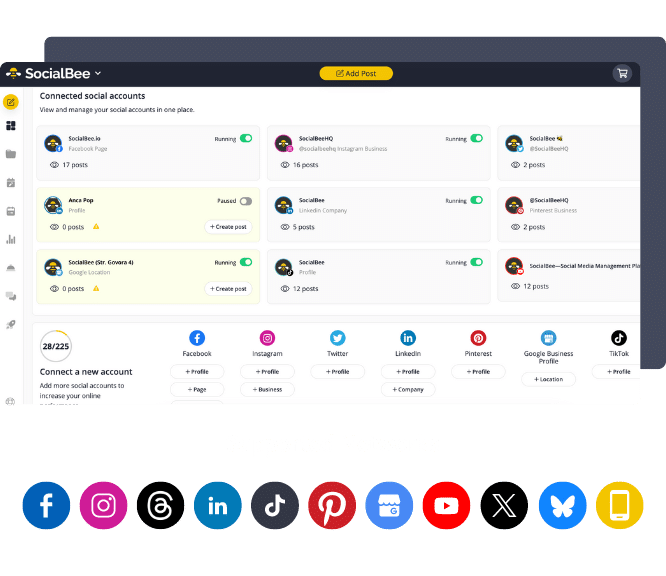
Create and publish your Instagram content with SocialBee!
Create posts, publish, analyze, engage and collaborate, all from SocialBee.

